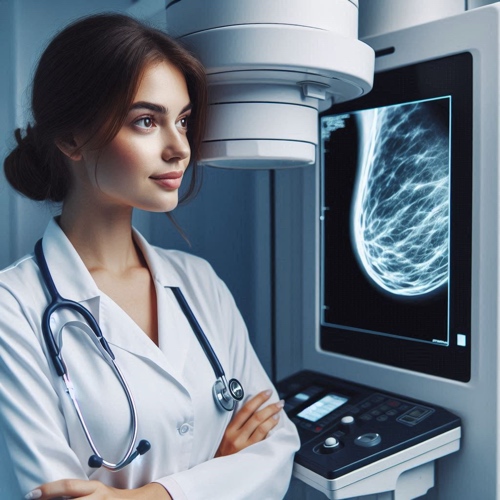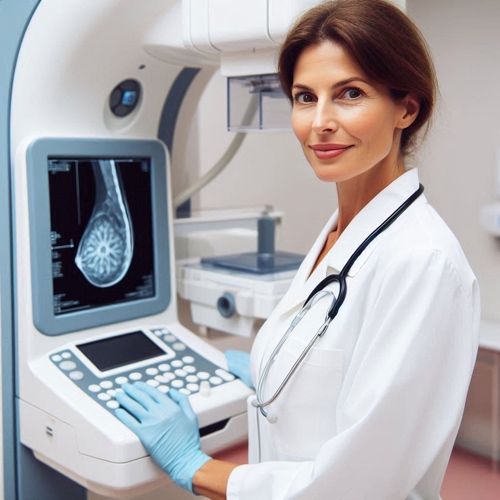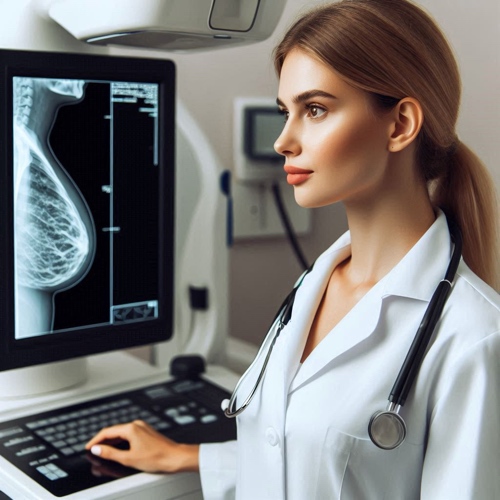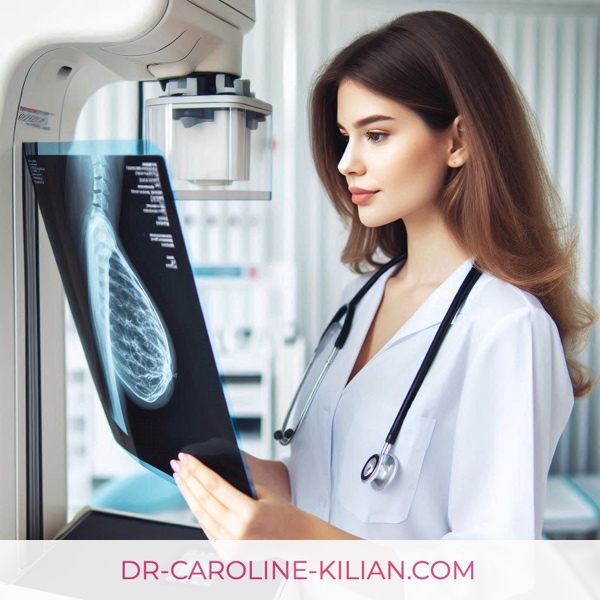What is breast cancer?
Breast cancer is a malignant tumor that develops in the breast tissue. It is one of the most common cancers in women, but can also occur in men. Early detection and treatment play a key role in successfully fighting this disease.
Symptoms of breast cancer
The early stages of breast cancer are often asymptomatic, making regular checkups especially important. However, as the disease progresses, the following symptoms may occur:
- The appearance of a lump or nodule in the breast or underarm area;
- Changes in the shape or size of the breast;
- Discharge from the nipple, especially bloody discharge;
- Changes in the skin on the breast, such as redness, induration, or flaking;
- Pain in the breast or nipple.
Risk Factors
Although the exact causes of breast cancer remain unknown, there are certain risk factors that may increase the likelihood of developing the disease:
- Age: the risk increases with age;
- Genetics: presence of mutations in the BRCA1 and BRCA2 genes;
- Family history: cases of breast cancer in close relatives;
- Personal history of breast cancer or other cancers;
- Hormonal factors: prolonged use of hormone therapy, early onset of menstruation or late menopause;
- Lifestyle: smoking, alcohol abuse, obesity and lack of physical activity.
Diagnosis
Early detection of breast cancer greatly increases the chances of successful treatment. There are several methods of diagnosis:
- Mammography: an X-ray examination that allows early detection of tumors;
- Ultrasound: helps to distinguish solid masses from cysts;
- Magnetic resonance imaging (MRI): used to study breast tissue in detail;
- Biopsy: takes tissue samples for laboratory analysis.
Treatment
The choice of treatment depends on the stage and type of cancer, as well as the patient's overall health. The main treatment methods include:
- Surgery: removal of the tumor or the entire breast (mastectomy);
- Radiation therapy: the use of high-energy rays to kill cancer cells;
- Chemotherapy: the use of medications to kill cancer cells;
- Hormone therapy: blocking the action of hormones that stimulate the growth of cancer cells;
- Targeted therapy: the use of drugs that target specific molecular targets in cancer cells.
Prevention
While it is impossible to completely prevent breast cancer, there are measures that can reduce the risk of developing it:
- Regular checkups: getting mammograms and other diagnostic tests;
- Healthy lifestyle: maintaining a normal weight, physical activity, smoking cessation and moderate alcohol consumption;
- Genetic testing: to detect mutations in the BRCA1 and BRCA2 genes in high-risk individuals;
- Hormonal prophylaxis: using medications to reduce risk in high-risk women.
Conclusion
Breast cancer is a serious disease that requires careful attention and timely diagnosis. Dr. Caroline Kilian and her team are here to provide you with comprehensive support and state-of-the-art treatments to ensure the best possible outcomes. Remember, your health is in your hands and regular checkups can save lives.











